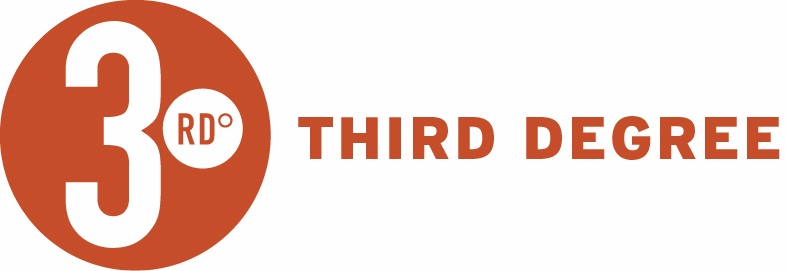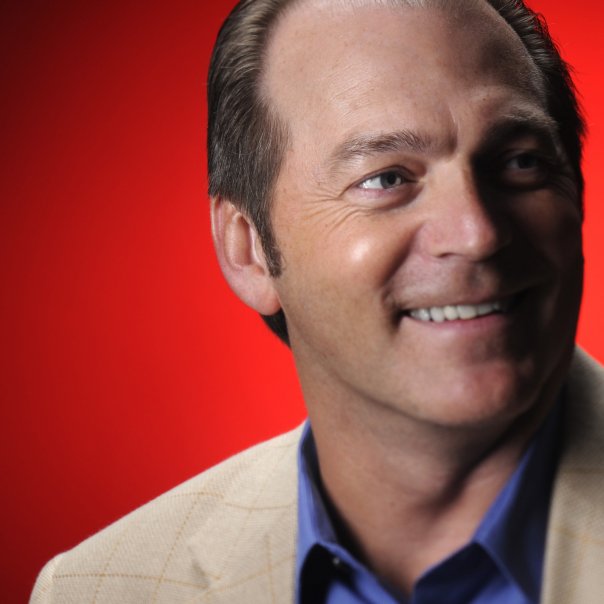10 Agency New Business Questions for Roy Page
“10 Agency New Business Questions” is a series of posts from interviews of individuals who’ve found success heading new business at their respective agencies. In the post that follows, Roy Page, CEO of Third Degree Advertising, with offices in Raleigh/Durham, NC, Oklahoma City, OK and San Diego, CA, answers our 10 questions regarding his company’s new business strategy and experience.

Third Degree partners with progressive credit unions and other businesses during times of growth and transition to help them successfully navigate the new realities of a more competitive and complex marketplace.
You can follow Third Degree on Twitter at @thirddegreeadv and Roy at @RoyWPage.

1. How long have you been leading/involved in the new business strategy at Third Degree?
As the agency principal, business development has always been a major role for me.
While we’ve had a mix of approaches through the years, I’ve always been involved in the “closing” portion of the process.
2. Was your background in agency new business prior to joining Third Degree?
No, I started in the business as an account executive for an agency serving a national fast-food brand.
My initial focus was on project management and local market tactical implementation.
Over time, my role shifted to more strategic planning. I gained valuable insight into agency operations, client management and account planning that served me well along the journey to agency ownership.
New business development came out of necessity in order to establish a sustainable company.
3. How is new business structured at your agency, in regards to a solo or team configuration and staff numbers dedicated to new business?
We’re a small company in terms of head-count.
New business is a team effort by necessity, however, we have a system that leverages key players in each department when necessary.
We rely heavily on the development of thought leadership since we are a specialized firm.
We serve the financial services industry and have become experts at understanding the challenges financial companies face day-to-day.
There is seldom a client or prospect challenge we haven’t seen or experienced before.
Nearly every client-facing professional can offer expertise and response to the toughest of client challenges.
Many of us at Third Degree are capable of having conversations with prospective clients.
4. In terms of strategy, how have you found success-through a specific niche/specialty or a more horizontal approach based on service specialty, and why?
As a specialist we tend to see trends and opportunities that are not all that unique to us.
They might be unique to a client because clients don’t often have the exposure to a broader industry perspective outside their own walls.
We have that knowledge and experience as a result of partnering with their peers across the country.
This insight is powerful for us. We’ve also recruited staff from the financial services industry.
While recruiting from the client side certainly has its challenges, once they experience the excitement of working on multiple brands with diverse challenges, the end result is a higher value service offering for our clients.
We’re able to share insight and recommendations from the perspective of practitioners in the clients’ industry.
This combined with a solid prospecting strategy produces a great return on our business development efforts.
5. Which do you find more successful for your program-inbound, outbound or a blend of both, and why?
We seek a balance of both. Our thought leadership is a solid positioning tool.
We leverage multiple message channels for distribution.
We attend conferences, conduct workshops, webinars and partner with industry associations to nurture our positioning.
The goal is to create more inbound inquiries by remaining top-of-mind.

6. Which channel do you find most successful in winning new business: social, direct mail, phone, email/email campaigns or referrals? Feel free to pick more than one, and why?
It’s all of the above. However, we DO NOT cold call.
Phone calls are conversations based on warm leads.
If we place an outbound call its generally due to a referral or as a follow up to a conversation that started with a conference or speaking engagement.
Dialing for dollars is not our way.
Our thought leadership is regularly distributed through blog, email, and hard-copy mailing. We try to re-purpose content for multi-channel use wherever possible. We seek efficiency and cost-effectiveness.
7. Which social media platform is most effective for you in terms of new business, and why?
Again, there is no one platform better than the other.
For us, each platform has a specific purpose. We tend to focus our Facebook posts on company culture, which provides insight into our team chemistry.
Facebook content is a bit on the lighter side and is a great channel to put forth the personality of our company.
Twitter is more informational and a channel for sharing our insights and thought leadership.
Our Website is more about how we work and the work product we provide, along with our processes and outcomes.
We also try to leverage credible industry association platforms and digital channels.
8. If you could point to one main indicator of success, what would it be?
We track multiple lead generation metrics.
However, the ultimate measure of success for us stems from the number of inquiries and conversations that result into presentations or meetings.
We have a high close ratio. Therefore if we can increase the number of conversations in the pipeline, we can increase the number of conversions to client relationships.
9. Why do you think it’s so difficult for agencies to run successful new business programs on their own?
I can only share my experience with Third Degree.
When you’re a service-based business, solely dependent on the professional relationship of the client engagement,
. . .your priority is… serving the client.
After all, that is the business model.
A majority of the agency’s resources tend to be directed toward the client so the agency takes a bit of a backseat.
Historically when Third Degree has employed business development professionals they simply didn’t fit the culture, or didn’t produce the revenue result expected through the eyes of the rank and file.
Selling professional services that tend to be unpackaged is challenging. Our teams are accustomed to servicing, not selling.
I’ve more often witnessed tension between the business development staff and creative and service staff in the agency realm.
Business development staff tends to be needy and rely heavily on other disciplines in the agency to provide support.
Since the majority of agency staff is committed to meeting deadlines of the client, supporting business development seems to be perceived as a chore and not a vital part of doing great work.
It’s an unjust perception, but it is real in my experience. Perhaps we are too focused on the art of the business vs. the business of the business.
10. If you could give one piece of advice to a mid-to-small size agency looking to kick a new business effort into gear, what would it be?
Be the experts your clients want you to be.
Be the experts you claim to be. Live it. Write about it. Share it. Make the investment in it.
Present your positioning in the same manner and with the same passion you would advise your clients.
Do that, and the prospects will seek you out, instead of you seeking them out.
Thanks to Roy for his interview.
Roy is the first CEO in our series and I asked him to take part for that reason and also to provide perspective from a specialist agency.
My favorite two takeaways:
1) Third Degree relies heavily on thought leadership and does not “dial for dollars.” This, in my opinion, is huge and couldn’t agree more. As I’ve pointed on on this blog previously, cold calling doesn’t work, but calling does.
2) This quote from Roy:
. . .clients don’t often have the exposure to a broader industry perspective outside their own walls
is so true and agencies often forget the bubble clients live in. Agencies have a huge opportunity, not just in the actual work, but in informing clients-essentially becoming a go-to source for industry trends, information and knowledge.
Roy Page is the founder and CEO of Third Degree Advertising with offices in Raleigh/Durham, NC, Oklahoma City, OK and San Diego, CA. Page is the author of Credit Union Savvy, a book offering a collection of insights gleaned through years of marketing credit unions throughout the United States. He is also the author of A Letter to Evan, a book based on a letter written to his son following what he calls “a perfect storm” that impacted his personal and professional life.
Page has served as an instructor of advertising at the University of Oklahoma’s Gaylord College of Journalism and Advertising.
An avid sportsman and outdoors enthusiast, he especially loves spending time with his children and family on his 17-foot Boston Whaler on North Carolina’s Inner and Outer Banks. You can follow Roy’s personal and professional journey on his blog at www.ALettertoEvan.com








